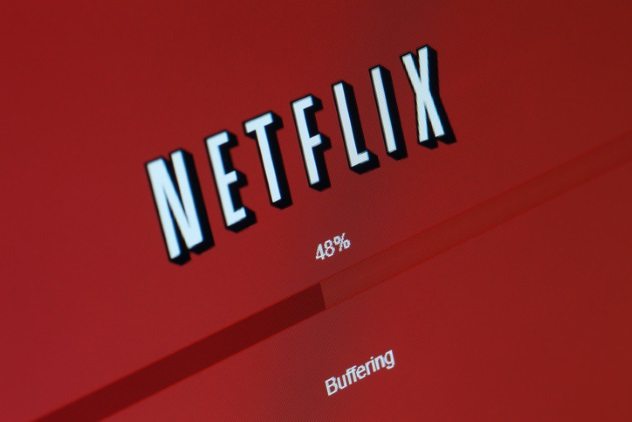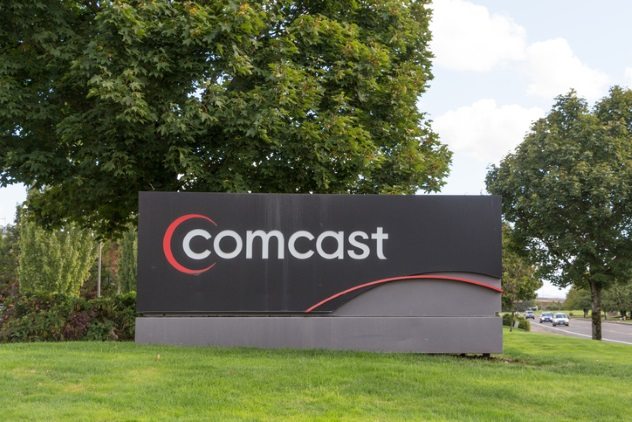 Crime
Crime  Crime
Crime  Movies and TV
Movies and TV 10 Movie Franchises That Started Dark but Turned Surprisingly Soft
 History
History 10 Wars That Sound Made Up (but Absolutely Happened)
 Movies and TV
Movies and TV 10 Movie Adaptations That Ruined Everything for Some Fans
 History
History 10 Dirty Government Secrets Revealed by Declassified Files
 Weird Stuff
Weird Stuff 10 Wacky Conspiracy Theories You Will Need to Sit Down For
 Movies and TV
Movies and TV 10 Weird Ways That TV Shows Were Censored
 Our World
Our World 10 Places with Geological Features That Shouldn’t Exist
 Crime
Crime 10 Dark Details of the “Bodies in the Barrels” Murders
 Animals
Animals The Animal Kingdom’s 10 Greatest Dance Moves
 Crime
Crime 10 Criminal Masterminds Brought Down by Ridiculous Mistakes
 Movies and TV
Movies and TV 10 Movie Franchises That Started Dark but Turned Surprisingly Soft
 History
History 10 Wars That Sound Made Up (but Absolutely Happened)
Who's Behind Listverse?

Jamie Frater
Head Editor
Jamie founded Listverse due to an insatiable desire to share fascinating, obscure, and bizarre facts. He has been a guest speaker on numerous national radio and television stations and is a five time published author.
More About Us Movies and TV
Movies and TV 10 Movie Adaptations That Ruined Everything for Some Fans
 History
History 10 Dirty Government Secrets Revealed by Declassified Files
 Weird Stuff
Weird Stuff 10 Wacky Conspiracy Theories You Will Need to Sit Down For
 Movies and TV
Movies and TV 10 Weird Ways That TV Shows Were Censored
 Our World
Our World 10 Places with Geological Features That Shouldn’t Exist
 Crime
Crime 10 Dark Details of the “Bodies in the Barrels” Murders
 Animals
Animals The Animal Kingdom’s 10 Greatest Dance Moves
10 Facts That Show Exactly What’ll Happen Without Net Neutrality
On December 14, net neutrality is going to have its greatest showdown. The FCC will be holding a vote to decide whether to keep the Internet free and open, and the consequences could be severe. If net neutrality dies, your Internet provider will win the right to slow down websites, apps, and online services—and even block them outright.
We don’t need to wonder how far they’re willing to go. Corporations around the world have already taken every chance they can to get around net neutrality laws, and they’ve shown us exactly what they’ll do if we let them.
10 Countless Companies Have Blocked Skype

When Skype first came out on the market, we got to see firsthand exactly what Internet providers do when nobody stops them. They’ll block the competition.
As far as they were concerned, Skype was a threat. Most Internet providers also sold phone plans, and Skype was giving people a cheaper way to make phone calls. They didn’t have any way of competing, so they just shut Skype down.
AT&T pressured Apple into blocking the Skype app on all iPhones, and they weren’t the only ones to do it. Companies all around the world followed suit, and most didn’t stop at Skype. They blocked every program you could use to make phone calls online altogether.
The complaint was that Skype was being unfair by “not operating on a level playing field”—or, in other words, by having a better product.[1] There was a new product and they couldn’t compete, so they just blocked people from using it.
9 Comcast, Verizon, And MetroPCS Have All Slowed Down Netflix

In 2011, MetroPCS sent out an add boasting that anyone who signed up for their cheapest plan would get “YouTube access.” It sounded pretty positive, as long you didn’t read between the lines—because what they were really saying was that if you weren’t willing to pay for the expensive plan, every other video streaming site on the Internet was going to be blocked.
Their plan was a bit of glimpse into the future. For $10 more, they advertised, users could “preview and trial video content” but not actually watch it. And if they were willing to pay $20 more, they’d be permitted to access 18 different video streaming websites.
MetroPCS isn’t the only company to pitch a war against video services. Verizon has also been caught slowing down Netflix users. They didn’t make it impossible to watch a movie on Netflix, but they made sure Netflix was slow enough that no one would be able to waste their precious bandwidth by watching a video in HD.
Comcast has done it, too. That one’s especially troubling because they own television networks and have some pretty clear reasons to want to keep Netflix from succeeding. Comcast refused to stop slowing down their site until Netflix paid them money.[2] In other words, Comcast blackmailed their competition by sabotaging them and refusing to stop until they paid them—and before net neutrality, all that was perfectly legal.
8 Telus Blocked Their Workers Union’s Website

There are some grim, dystopic, 1984-like things that could happen if Internet providers were free to block any website they wanted. A company could silence anyone saying anything they didn’t like. As crazy as that sounds, it’s happened before.
In 2005, before Canada got new neutrality laws, the Canadian Internet provider Telus did just that. Their workers were on strike, and the union had set up a website called “Voices for Change” that laid out their complaints and their demands. And Telus blocked it.
Telus blocked its customers from seeing the union’s website and, in the process, blocked them from another 766 websites hosted on the same server.[3] They censored an entire section of the Internet entirely because they didn’t like what people were saying.
The craziest part, though, is that, without net neutrality, there was no law against it. People were protected if the government tried to censor them, but nobody could stop an Internet provider from doing it. In the end, Telus got a tongue-lashing—but they weren’t even fined a dime.
7 Plusnet Charged Customers Extra To Play Online Games

Before the United Kingdom introduced net neutrality, the company Plusnet tried a strange plan to keep their bandwidth down. From now on, they told their customers, anyone who wanted to play online games was going to have to pay extra.
The company set up a tier of different data plans, asking their customers to decide if they wanted to be able to surf the Internet, stream videos, play video games, or do all three. If they weren’t willing to pay for the premium package, they’d have to pay extra.[4]
It wasn’t just video games that were blocked in the cheaper plans. VPNs were blocked, forcing employees who remotely connect to their offices to pay out a little more. And, unless you were willing to pay for the most expensive plan, peer-to-peer programs like BitTorrent were slowed down so badly they hardly worked at all.
6 Comcast And Cox Cable Blocked VPN

In 2001, Comcast and Cox Communications updated their terms of services. From now on, they declared, all of their customers had to agree not to use a VPN, unless they were willing to pay for it.
It created some major problems. A VPN lets you connect to another network, which, for a lot of people, means it’s a way to connect to their office from home. That meant that a lot of people who work from home were suddenly blocked off from the way they made their livelihood.
When people called and complained, they didn’t get much sympathy. From now on, Comcast told them, anyone who works from home was going to have to upgrade to their “@Home Pro package”—and that was going to start at $95 a month.[5]
People were upset, but they couldn’t really do anything about it. They needed to use VPNs to make a living. They didn’t have any choice. Anyone who worked at home had two options: either start paying for the most expensive plan Comcast had or get a new job.
5 Verizon Blocked Google Wallet

In 2011, Verizon was hard at work developing its own digital wallet. They were going to change the way people made purchases, letting them cash out with a simple wave of their phone, and they were pretty sure they were going to make a fortune.
There were only two problems: Their product’s name—“Isis”—was about to become a lot less marketable, and Google had beat them to the punch. Google came out with the Google Wallet, a product that was essentially identical to Verizon’s Isis, and that meant Verizon’s secret project was pretty well doomed.
When Verizon realized they couldn’t beat Google fairly, though, they found another way. They blocked Google Wallet on all Verizon phones, making it impossible for any of their customers to pick their competition over them.
They got away with it, too. Verizon was accused of breaking net neutrality laws, but they were technically blocking Google’s hardware instead of its software, which, in a weird, convoluted way, made it legal.[6] And there’s every reason to believe that, if they had the ability to do that to any app that’s competing with one of their own, they’d take it.
4 Comcast Secretly Blocked BitTorrent

Comcast is barely even trying to hide what they plan on doing if net neutrality goes away. They’re going to take down BitTorrent—and they’ve tried to do it before.
In 2007, Comcast was caught blocking peer-to-peer programs like BitTorrent. Any Comcast customer who was trying to share files from one computer to another would find that their Internet connection inexplicably kept dropping.
At first, the company denied doing it, but after enough people had spread proof online, they couldn’t really keep up the lie. Comcast was caught and charged for deliberately dropping anyone who used a peer-to-peer program.
Comcast wasn’t exactly apologetic. They said that blocking BitTorrent was “necessary,” and they’ve very strongly hinted that they’ll do it again.[7] If net neutrality is repealed, Comcast has promised that they “will not block, throttle, or discriminate against lawful content.” If you read between the lines, though, you’ll quickly realize what they’re really saying. As far as they’re concerned, BitTorrent is “unlawful content”—and once net neutrality’s out of the way, they’re shutting it down.
3 Verizon Shut Down Wi-Fi Hot Spots

When the technology to turn your phone into a Wi-Fi hot spot came out, Verizon Wireless thought they’d found a great way to gouge a little bit more money out of their customers. They started offering it as an add-on. For an extra $20 a month, they announced, their customers could use their phone’s data plan through another device like a computer.
It sounded great on paper. The only problem was that there wasn’t any reason for anyone to give Verizon that $20. There were all kinds of apps available that let people turn their phones into Wi-Fi hot spots for free, so nobody was really jumping at the opportunity to pay Verizon for a free service.
Verizon couldn’t really compete with those apps—so they just shut them down.[8] They put pressure on Google and got them to remove every Wi-Fi hot spot app from the marketplace. They literally shut down 11 smaller businesses because they couldn’t compete with them.
2 Windstream And Paxfire Redirected Google Searches

In 2005, Windstream Communications was trying to get their search engine on the market and compete against Yahoo and Google. There was just one problem: Their search engine was awful. There was absolutely no reason anyone would ever willingly choose to use it.
Windstream, though, wasn’t about to give up. Sure, no one would choose to use their search engine—but what if they didn’t have any choice?
They tried something pretty bold. They set up a redirect. Any Windstream customer who typed something into Google would just be forcibly redirected to the Windstream search engine instead of getting Google results.
People were understandably furious, but Windstream wasn’t the only company to do it. Another one called Paxfire started accepting bribes from companies to redirect Google searches.[9] If any Paxfire customer Googled “apple,” for example, they wouldn’t get to see a list of options; they would just be forcibly sent to apple.com. It didn’t matter if they were looking for information on growing apples or recipes for apple pie—they were going to be looking at iPhones, and there was nothing they could do about it.
1 Verizon Has Admitted They Plan On Censoring The Internet

Most companies trying to end net neutrality are trying to hide what they’re up to—but Verizon, if nothing else, has been almost excessively honest about it. They have directly and unambiguously said that they want to end net neutrality so that they can censor free speech.
A Verizon attorney told the FCC that they believe that, as broadband providers, they “transmit the speech of others” and deserve the right to what they call “editorial discretion.” “Just as a newspaper is entitled to decide which content to publish and where,” the attorney said, “broadband providers may feature some content over others.”[10]
They aren’t mincing words here. Everyone has the freedom to express themselves on the Internet, and Verizon doesn’t care for it. They want to be able to choose what goes online and what gets censored. Even when the FCC pushed them and asked if they planned on blocking websites, the attorney still didn’t deny that his company planned on censoring the Internet. “But for these rules,” he told them, “we would be exploring those types of arrangements.”
And that’s what’ll happen if net neutrality goes away. It’s not a paranoid fear or a worst-case scenario—it’s straight out of their mouths.
Read more about the Internet on 10 Strange Attempts To Start Internet Mysteries and 10 Notorious Internet Trolls Who Were Exposed.








